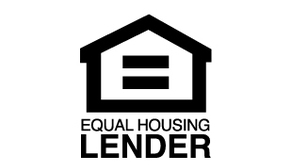While it’s no longer uncommon for LGBTQ couples to own property together, this was not always the case.
It was virtually unheard of for LGBTQ couples to legally own property or even apply for a mortgage together just a few short decades ago.
When it comes to rights, generations of the LGBTQ community have been denied the same opportunities and legal protections afforded to straight individuals.
Aside from the obvious one—the right to get married in any state and have that marriage legally recognized in all states—there is another issue not often discussed: financial inequality.
Since LGBTQ couples were not legally allowed to marry in many states, they could not enjoy any benefits from being married, from property ownership and transfer to tax breaks to loan applications. Read more about Mortgage Applications
In Illinois, however, the LGTBQ community has experienced a more welcoming environment. Indeed, Illinois was the first U.S. state to decriminalize homosexuality in 1962. What’s more, a landmark victory for the LGBTQ community came in the form of the Illinois Human Rights Act.
Read on to learn more about the history of mortgage access to LGBTQ couples.
What Is The Illinois Human Rights Act?
The Illinois Human Rights Act was passed on December 6, 1979, under Governor James R. Thompson. Known simply as “the Act,” the bill’s goal was to create the broadest civil rights coverage for residents of Illinois in the history of the state.
The bill is enforced by the Illinois Department of Human Rights. According to its charter, the bill “prohibits discrimination in Illinois with respect to employment, financial credit, public accommodations, and real estate transactions.”
While the bill in its original form covered the LGBTQ community in broad terms, more specific protections came in the form of an amendment during the mid-2000s.
In 2005, the Illinois Human Rights Act was expanded to prohibit discrimination on the basis of an individual’s sexual orientation.
The definition covered whether a person identified as heterosexual, homosexual, bisexual, or other gender-related identities, whether or not that identity was the one traditionally associated with the sex assigned at birth.
Specifically, the amendment protects members of the LGBTQ community from acts of discrimination in terms of employment, public accommodation, housing, and receiving certain financial services.
The bill became effective on January 1, 2006, making Illinois the 15th state to offer people protection against discrimination on the basis of sexual orientation.
Federal Protections for LGBTQ Couples
Aside from protection on a state level, the LGBTQ community in Illinois is also financially protected on a federal level through two laws:
The Fair and Equal Housing Act
Passed in 1968 as the Fair Housing Act, this legislation protects all Americans from discrimination based on race, color, national origin, religion, sex, family status, and disability.
Since the original bill did not include any mention of sexual orientation, a new bill was introduced in 2019.
The Fair and Equal Housing Act, the new bill recognized “sexual orientation” and “gender identity” as protected classes.
The Equal Credit Opportunity Act
The original Equal Credit Opportunity Act of 1974 prohibited credit lending discrimination on the basis of race, color, national origin, religion, sex, family status, and disability.
However, it had the same limitations as the original Fair Housing Act because sexual orientation was not recognized as a protected class.
In 2021, however, the Consumer Financial Protection Bureau (CFPB) expanded the definition of the Equal Credit Opportunity Act to include sexual orientation and gender identity.
This gave the LGBTQ community further financial protections. At last, LGBTQ couples could apply for loans without fear of being rejected outright based on their sexual identity or orientation.
How Does the Illinois Human Rights Act Help the LGBTQ Community?
Before state and federal protections were enacted for the LGBTQ community, there was widespread discrimination, particularly in financial matters.
There are countless cases of LGBTQ couples being barred from enjoying what many heterosexual couples enjoy as “normal” state rights, such as applying for joint mortgages, receiving tax breaks, or even inheriting property in the event of a life partner’s passing.
One well-known case in Washington state involved a woman named Helen Thornton. She had been with her partner, Margery Brown, for 27 years before Brown passed from ovarian cancer.
Since she passed before the legalization of same-sex marriage, the Social Security Administration denied survivor’s benefits. Thornton faced a prolonged legal battle to get survivor’s benefits to which she was entitled and was only granted them in 2020, almost two decades after the death of her partner.
Now that the Illinois Human Rights Act is in place and the federal acts mentioned above, LGBTQ couples who face discrimination can file legal challenges with organizations such as the Department of Housing and Urban Development (HUD) or the CFPB.
Residents of Illinois can also file a complaint with the Illinois Department of Human Rights.
While the passing of the Illinois Human Rights Act offers a concrete legal avenue for LGBTQ couples to pursue, the community still faces many obstacles.
In a 2019 study by Iowa State University called “Lending Practices to Same-Sex Borrowers,” it was found that LGBTQ couples are 73% more likely to be disqualified in a mortgage application than a similarly qualified heterosexual couple.
The study also found that LGBTQ couples who were approved for mortgages paid an average of 0.02 % to 0.2% more in interest.
Even within the LGBTQ community itself, there still seems to be some form of discrimination.
In another 2019 study by the University of Alabama, it was found that white gay couples faced the lowest rejection rates when applying for Federal Housing Administration (FHA) mortgage loans. Black male couples, on the other hand, faced the highest rejection rates.
While there have been leaps and bounds when it comes to providing the LGBTQ community with equal rights, discrimination still exists today, especially regarding LGBTQ mortgage loans and housing opportunities.
Challenges in Recognizing LGBTQ Housing Discrimination
LGBTQ couples who are applying for home loans or are in the process of buying a house should be vigilant when it comes to discrimination.
It can be easy to spot discriminatory practices, such as lenders who refuse to broker transactions outright based solely on sexual orientation or gender identity. However, it can be much harder to recognize subtle discrimination.
An LGBTQ couple might not know they are being offered higher mortgage rates than what would be quoted to a heterosexual couple.
If the couple is applying for a property marked as available and is later told it is no longer available, they have no way of knowing whether it was genuinely taken off the market or whether the property is being withheld based on their sexual orientation.
There is even a process called “redlining,” which refers to the systematic denial of equal services to groups that are historically discriminated against, particularly in terms of financial services.
Often, the process involves deliberately raising market prices in neighborhoods where historically discriminated groups are seen as “undesirable” to discourage them from purchasing property, thus maintaining the “status quo” in these areas.
How to Protect Yourself Against LGBTQ Housing Discrimination
For LGBTQ couples who want to avail themselves of a mortgage loan while avoiding discrimination, the best way is simple: Hire someone who has skin in the game.
Gay couples can hire a gay realtor, and lesbian couples can hire a lesbian realtor. Having an LGBTQ realtor can help inspire trust between the two parties, making the process easier and smoother.
The National Association of Gay and Lesbian Real Estate Professionals (NAGLREP) offers a vast network of LGBTQ real estate agents who can assist.
Aside from hiring an LGBTQ realtor, finding a trustworthy and reliable mortgage lender can be beneficial.
Look for a company with a reputation for dealing openly and fairly with clients, regardless of sexual orientation. Testimonials and referrals from friends, as well as online reviews, can make the search easier.
Finally, getting legal assistance is a powerful tool for LGBTQ couples who have been the victims of housing discrimination.
As mentioned above, complaints can be filed with both the HUD and the CFPB. For residents of Illinois, complaints can be filed with the Illinois Department of Human Rights and the American Civil Liberties Union (ACLU), Illinois chapter.
Another possible legal resource is seeking help from Lambda Legal. Lambda Legal is a nonprofit civil rights organization that provides housing information and resources for the LGBTQ community.
Indeed, it was Lambda Legal that helped Thornton file and wins her discrimination case. Illinois residents can avail themselves of local services from Lambda Legal by contacting their regional office.
Proud Equal Housing Lender
At A and N Mortgage, we believe that everyone deserves the right to a safe and comfortable home. We strive to give all our clients the best services, regardless of sexual orientation and gender identity. Call us today at 773-305-LOAN to learn more about our competitive rates and wide range of services.







